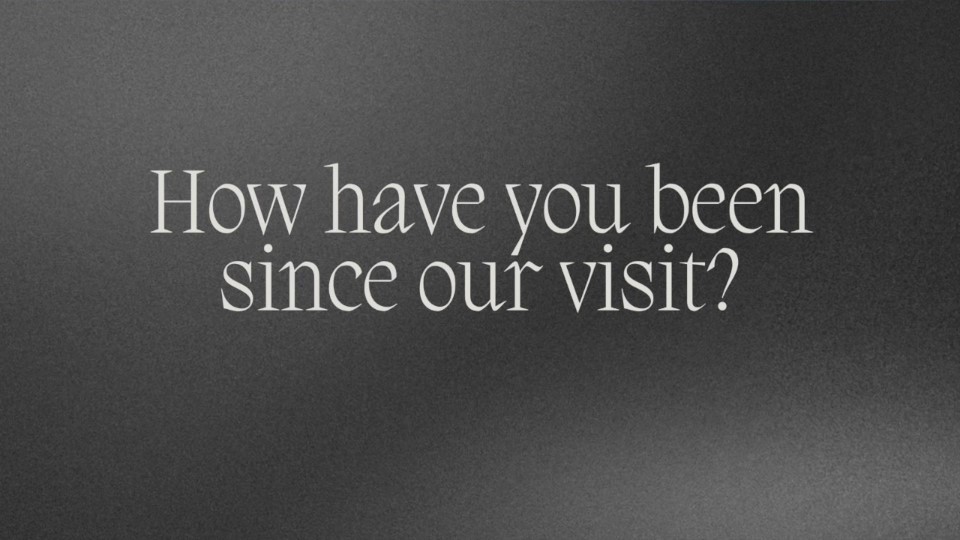Ladies and gentlemen, we are back with the ‘Real’-ationship Series! Joining us again after a couple weeks between our meetings, Kita has been processing since our last visit. She tells us she’s been “being mindful of how I’m showing up in a room and really looking at what’s going on, instead of just being invisible but present, if that makes sense.”
This conversation might feel familiar to you—it’s the journey many of us are on. A journey of realizing that just being physically present isn’t enough, that we have something to say, something to bring to the table. And yet, we often hold ourselves back.
Why? Because we’ve convinced ourselves that if we speak, we’ll offend. That our words might be too harsh, too direct. So we stay quiet. We don’t give ourselves permission to speak, to really show up. Instead, we tiptoe through conversations, walking on eggshells, afraid of how others might react.
For many of us, the reluctance to speak our minds comes from a fear of being too much. We think, If I’m honest, I might hurt someone’s feelings. And while there’s something to be said for kindness and tact, there’s also something destructive about constantly filtering yourself to avoid offending others.
I invite you to watch this week’s video, as we explore this further with Dr. Kita Moses.
Let’s dig a little deeper into where this fear comes from. Maybe it started for you, like it did for my friend, at a young age—around 6 or 7. You spoke your mind, someone got upset, and you created a rule: “If I’m honest, people will get hurt.” And you’ve carried that rule with you into adulthood, applying it in your conversations with family, friends, customers—everyone.
But here’s the thing: that rule? It was made by a 6-year-old. And yet, you’re still living by it today.
Now, let’s ask a tough question: When someone gets offended by your honest remarks, whose choice is that? Is it your choice that they’re offended, or is it theirs? In most cases, it’s their choice. You’re being honest, and that honesty isn’t always comfortable to hear. But does that mean you should stop being honest? Should you keep walking on eggshells just to avoid any discomfort for others?
If you’re constantly holding back your true thoughts and feelings, how is that helping you? It’s not. And how is that helping others? It’s really not.
Walking on eggshells isn’t honest. It’s not authentic. And, in the long run, it doesn’t serve you or the people around you.
So, what do you do? The first step is recognizing that the rule you made when you were a child doesn’t have to apply anymore. You’re not 6 or 7 years old. You don’t need to hold back your voice to keep the peace. You have something valuable to contribute, and it’s time to stop letting the fear of offending others keep you from showing up fully.
This doesn’t mean you should be careless with your words or go out of your way to be hurtful. It means finding a way to be direct, to speak your truth, while still being thoughtful and empathetic. But, more importantly, it means recognizing that people will react how they’re going to react—and that’s not something you can control.
You don’t need to carry the weight of other people’s discomfort. You are responsible for your honesty, your integrity, and your authenticity. And when you show up with those things, you can trust that the right people will hear you for who you are, not for how comfortable you make them feel.
So, here’s your challenge: give yourself permission to speak. Show up fully in the room, whether it’s with your customers, your family, or your friends. You have something to say, and it’s time to stop holding it in.
If you’re honest, what matters is that you’re showing up with authenticity, not walking on eggshells or silencing yourself to keep everyone else comfortable. You deserve to take up space, to bring your voice into the conversation, and to contribute what only you can. Remember, it’s not about being invisible and present—it’s about showing up with all that you are, unafraid of how others will react.
You’ve been playing by an old rule for long enough. It’s time to rewrite it. Go ahead, take that step. Speak your mind. You’ll be surprised at how liberating it feels.
Tell us in the comments: Did this resonate with you? Speak up, and take the first step toward claiming your voice. And the next time you catch yourself holding back, remember: your honesty is a gift, not a burden.

